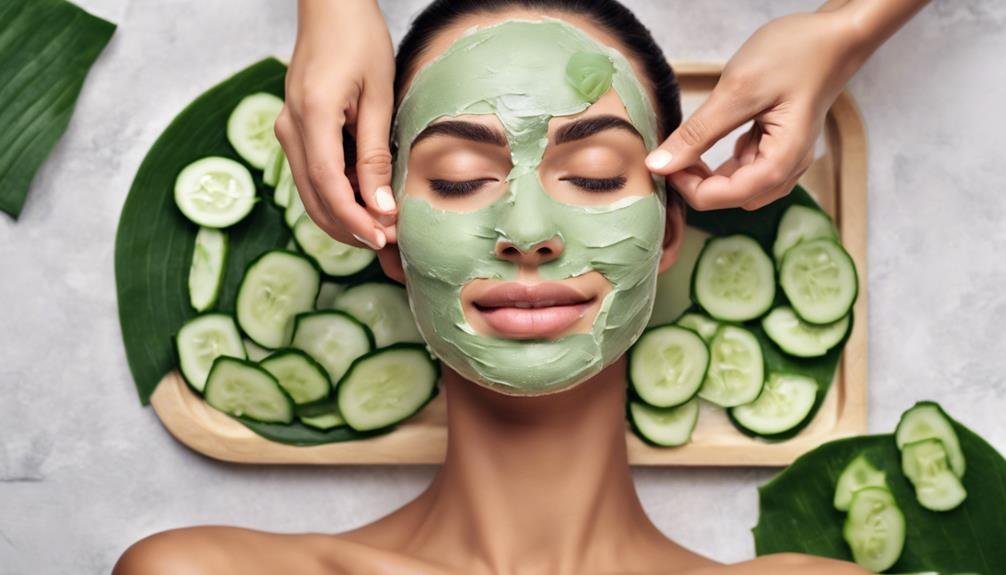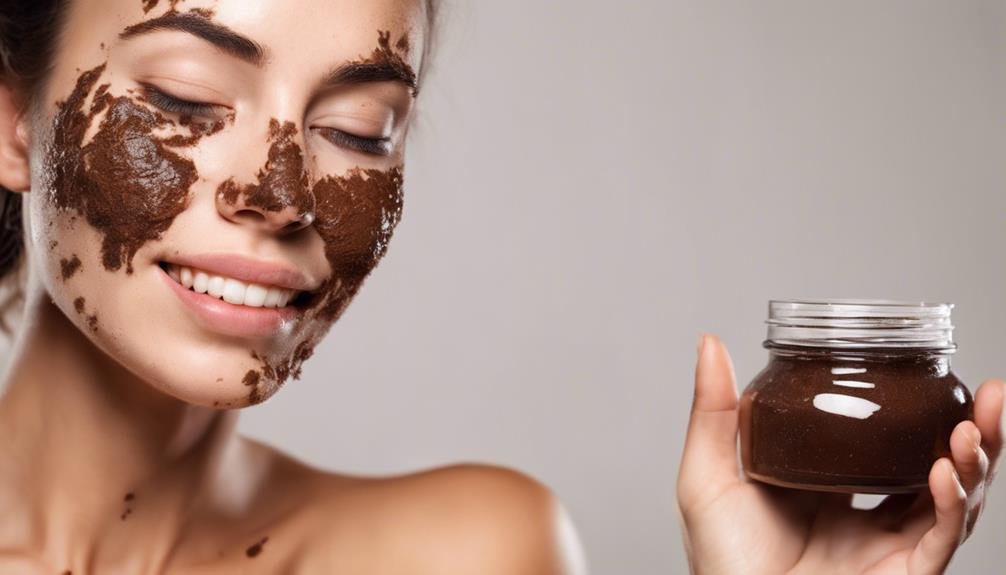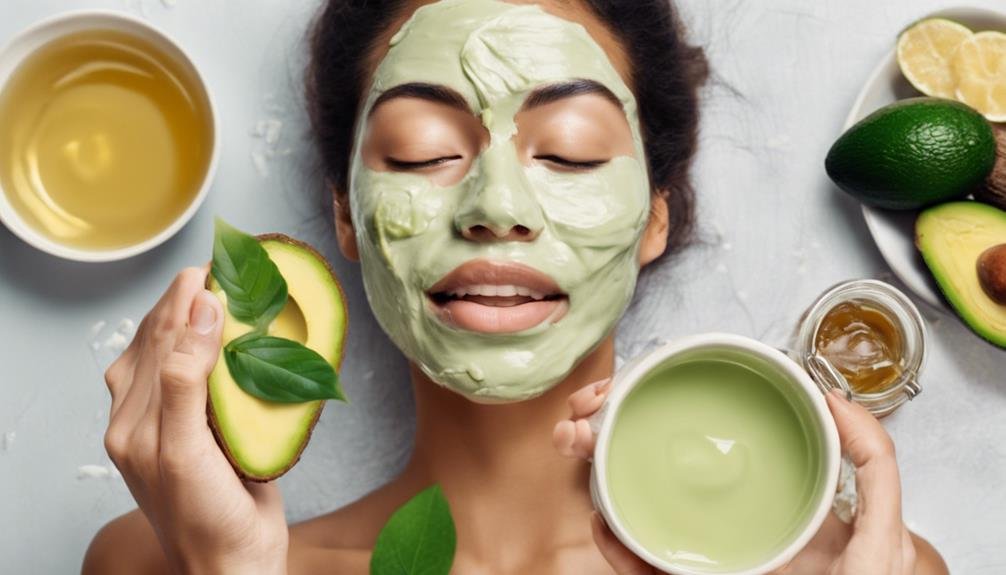"Cherishing Little Steps - A Haven for Baby and Family Journeys"
How to Detox Your Skin Naturally
To naturally detox your skin, begin by understanding the significance of a holistic approach to skincare. From gentle cleansing methods to the benefits of incorporating antioxidants and essential oils, there are various effective ways to support your skin's detoxification process. By diving into the details of each step and discovering how they synergize to enhance your skin's health, you can unlock the secrets to achieving a radiant and revitalized complexion.
Key Takeaways
- Stay hydrated to flush out toxins and maintain skin elasticity.
- Use gentle cleansing techniques with a mild cleanser.
- Incorporate antioxidants like Vitamin C and green tea extract.
- Exfoliate regularly to remove dead skin cells for skin renewal.
- Consider essential oils like tea tree and lavender for skin detoxification.
Benefits of Skin Detox

To truly understand the benefits of skin detox, it's essential to recognize the vital role our skin plays in overall health. Your skin acts as a protective barrier, shielding your body from harmful external elements like pollutants, UV radiation, and microbes. Through daily exposure, your skin can accumulate toxins and impurities, leading to various skin issues such as acne, dullness, and premature aging.
Skin detoxification helps to eliminate these accumulated toxins, promoting healthier and clearer skin. By removing impurities through methods like gentle exfoliation, hydration, and using natural skincare products, you can enhance your skin's ability to regenerate and repair itself. This process can result in a more radiant complexion, improved skin texture, and reduced inflammation.
Furthermore, skin detox can boost the effectiveness of your skincare products, allowing them to penetrate deeper into the skin and work more efficiently. By incorporating regular skin detox routines into your skincare regimen, you can support your skin's natural detoxification processes and maintain a healthy, glowing complexion.
Importance of Hydration
Ensuring proper hydration is crucial for maintaining healthy skin. Hydration plays a fundamental role in skin detoxification by facilitating the removal of toxins and waste products through sweat and urine. Water is essential for maintaining skin elasticity, preventing dryness, and promoting a radiant complexion. When you're dehydrated, your skin may appear dull, flaky, and prone to irritation. Proper hydration helps to plump up skin cells, reducing the appearance of fine lines and wrinkles. Additionally, water aids in regulating body temperature, which is essential for proper skin function.
To maintain optimal skin hydration, it's recommended to drink at least 8-10 glasses of water per day. You can also increase your water intake by consuming hydrating foods such as fruits, vegetables, and herbal teas. Avoid excessive caffeine and alcohol consumption, as these can dehydrate the skin. Using a humidifier in your living space can also help maintain adequate moisture levels in the air, benefiting your skin. Remember, staying hydrated is a simple yet powerful way to support your skin's natural detoxification process.
Gentle Cleansing Techniques

For effective skin detoxification, utilizing gentle cleansing techniques is essential. When washing your face, opt for a mild, non-abrasive cleanser that's suitable for your skin type. Harsh products can strip away natural oils, disrupting the skin's barrier function.
Use lukewarm water to cleanse, as water that's too hot can cause irritation and dryness. Gently massage the cleanser into your skin using circular motions, focusing on areas prone to congestion. Avoid using excessive pressure, as this can lead to inflammation and redness.
After cleansing, pat your skin dry with a soft towel instead of rubbing, which can cause friction and damage. Remember to cleanse your skin twice daily, in the morning and evening, to remove impurities and maintain a healthy complexion.
Incorporating Antioxidants
Incorporating antioxidants into your skincare routine is crucial for protecting your skin from free radical damage and promoting overall skin health. Antioxidants such as Vitamin C, Vitamin E, and green tea extract work by neutralizing free radicals that can cause premature aging and skin damage. You can introduce antioxidants into your routine by using serums, creams, or oils that contain these powerful ingredients.
Vitamin C, for example, helps brighten the skin and reduce the appearance of dark spots, while Vitamin E is known for its moisturizing and healing properties. Green tea extract is rich in polyphenols, which have anti-inflammatory and antioxidant effects, making it beneficial for soothing and protecting the skin.
When selecting antioxidant products, look for stable formulations that come in opaque or airtight packaging to prevent degradation. Incorporating antioxidants into your daily skincare regimen can help enhance your skin's natural defense mechanisms, improve its overall appearance, and combat the effects of environmental stressors.
Exfoliation for Skin Renewal

To maintain optimal skin health, a key aspect to consider is exfoliation for skin renewal. Exfoliation is the process of removing dead skin cells from the surface of your skin, allowing for new, healthy skin cells to regenerate. This practice not only helps in achieving a smoother and more radiant complexion but also aids in preventing clogged pores, acne breakouts, and uneven skin tone.
There are two main types of exfoliation: physical and chemical. Physical exfoliation involves the use of scrubs, brushes, or exfoliating tools to manually remove dead skin cells.
On the other hand, chemical exfoliation utilizes acids like alpha hydroxy acids (AHAs) or beta hydroxy acids (BHAs) to dissolve the bonds between skin cells, resulting in a gentler but effective exfoliation process.
It is important to choose an exfoliation method that suits your skin type and concerns. For sensitive skin, milder exfoliants are recommended, while oily skin may benefit from stronger exfoliating agents. Incorporating exfoliation into your skincare routine 1-3 times a week can promote skin renewal and overall skin health.
Herbal Infusions for Skin Health
Enhancing your skin health through natural means can involve the use of herbal infusions, which have been recognized for their beneficial properties in promoting skin radiance and vitality. Herbal infusions are potent concoctions made by steeping herbs in hot water, allowing their active compounds to be extracted.
Here are some herbal infusions that can work wonders for your skin:
- Chamomile: Known for its anti-inflammatory properties, chamomile can help soothe irritated skin and reduce redness.
- Calendula: With its healing abilities, calendula can aid in repairing damaged skin and promoting a healthy complexion.
- Green Tea: Rich in antioxidants, green tea infusion can protect the skin from environmental stressors and improve overall skin health.
- Lavender: This fragrant herb can help calm both the skin and the mind, reducing stress-induced skin issues and promoting relaxation.
Incorporating these herbal infusions into your skincare routine can provide a natural and effective way to boost your skin's health and appearance.
DIY Face Masks

Purifying your skin with DIY face masks can be a rewarding way to rejuvenate and nourish your skin. These masks are a natural and effective method for detoxification. One popular option is a honey and cinnamon mask, known for its antibacterial properties that can help combat acne and promote a healthy complexion. To make this mask, mix a teaspoon of raw honey with a pinch of cinnamon, apply it to your face, and leave it on for 10-15 minutes before rinsing off with warm water.
Another beneficial DIY face mask is the oatmeal and yogurt mask. Oatmeal is soothing and can help to calm irritated skin, while yogurt contains lactic acid that gently exfoliates, leaving your skin feeling refreshed. Simply combine cooked oatmeal with plain yogurt, apply to your face, and let it sit for about 20 minutes before washing off.
Dry Brushing for Lymphatic Drainage
When it comes to promoting lymphatic drainage and enhancing circulation for healthy skin, dry brushing is a technique that has gained popularity for its potential benefits. Dry brushing involves using a natural bristle brush to gently massage the skin in specific motions to stimulate the lymphatic system and improve blood flow. Here are some key steps to effectively incorporate dry brushing into your skincare routine:
- Begin at your feet: Start the brushing motion from your feet, moving in long strokes towards your heart to follow the natural flow of lymphatic fluid.
- Use gentle pressure: Apply light pressure while brushing to avoid irritating the skin, especially in sensitive areas.
- Brush in circular motions: When targeting areas with cellulite or stubborn toxins, use circular motions to help break down and release toxins.
- Finish with a shower: After dry brushing, it's beneficial to take a shower to wash away the loosened dead skin cells and toxins.
Essential Oils for Skin Detox

To effectively support the process of skin detoxification, incorporating essential oils into your skincare regimen can provide beneficial properties that aid in purifying and rejuvenating the skin.
Essential oils such as tea tree oil, lavender oil, and rosemary oil possess antimicrobial, anti-inflammatory, and antioxidant properties that can help cleanse and nourish your skin.
Tea tree oil is known for its ability to combat acne and breakouts due to its antibacterial properties.
Lavender oil not only soothes the skin but also promotes healing and reduces redness and inflammation.
Rosemary oil has antioxidant properties that protect the skin from damage caused by free radicals.
When using essential oils for skin detox, remember to dilute them in a carrier oil to prevent skin irritation.
Incorporating these essential oils into your skincare routine can enhance the detoxification process and leave your skin feeling refreshed and rejuvenated.
Nutrient-Rich Diet for Skin
Incorporating a nutrient-rich diet is fundamental for supporting the overall health and vitality of your skin. Your skin requires a variety of vitamins, minerals, and antioxidants to maintain its natural glow and resilience. Here are four essential nutrients that can help your skin stay healthy and rejuvenated:
- Vitamin C: Known for its powerful antioxidant properties, Vitamin C helps in collagen production, brightening your skin tone, and protecting against sun damage.
- Omega-3 Fatty Acids: Found in fatty fish like salmon and walnuts, Omega-3 fatty acids help in maintaining skin hydration, reducing inflammation, and supporting skin barrier function.
- Zinc: This mineral plays a crucial role in regulating oil production, healing skin wounds, and fighting acne-causing bacteria.
- Vitamin E: Another potent antioxidant, Vitamin E helps in protecting your skin from oxidative stress, reducing signs of aging, and promoting overall skin health.
Stress Management for Skin Health

For optimal skin health, managing stress is a crucial aspect that often gets overlooked. When you experience stress, your body releases cortisol, a hormone that can lead to inflammation and break down collagen in the skin. This process can result in various skin issues such as acne, eczema, and premature aging. Learning to manage stress effectively can significantly benefit your skin's health and appearance.
To combat stress and support your skin, consider incorporating relaxation techniques into your daily routine. Practices like deep breathing, meditation, yoga, or spending time in nature can help lower cortisol levels and promote skin rejuvenation. Additionally, engaging in regular physical activity can boost endorphins, which are known to reduce stress and improve overall skin health.
Maintaining a healthy work-life balance, setting boundaries, and prioritizing self-care are essential steps in managing stress for better skin health. Remember, taking care of your mental well-being is just as important as caring for your skin externally. By addressing stress levels, you can promote a healthier complexion and overall well-being.
Sleep and Skin Regeneration
Stress can significantly impact your skin's health, affecting its appearance and overall well-being. One crucial aspect of skin detoxification is ensuring you get enough quality sleep. During sleep, your skin goes into repair mode, regenerating and renewing itself. Here's how sleep aids in skin regeneration:
- Cell Repair: While you sleep, your skin cells work hard to repair any damage caused by environmental factors like UV rays and pollution.
- Collagen Production: Sleep boosts collagen production, a vital protein that maintains skin elasticity and firmness.
- Blood Flow: Adequate sleep improves blood flow to the skin, delivering essential nutrients and oxygen for a healthy complexion.
- Reduction of Inflammation: Getting enough sleep helps reduce inflammation in the body, leading to calmer and clearer skin.
Frequently Asked Questions
Can Skin Detox Cause Initial Breakouts?
Yes, skin detox can sometimes cause initial breakouts as it purges impurities. This process, known as "purging," can lead to temporary flare-ups. However, with consistent and gentle detox methods, your skin should gradually improve and become clearer.
Is It Safe to Detox Skin While Pregnant?
Detoxing your skin while pregnant can be risky due to potential absorption of certain substances. However, gentle methods like hydrating, using natural products, and consulting with a healthcare provider may be safe options for a healthy skin detox during pregnancy.
How Often Should I Detox My Skin?
You should detox your skin based on its needs. Factors like skin type, environment, and lifestyle play a role. Generally, aim for 1-2 times a week for mild detox methods. Adjust frequency as needed, ensuring not to overdo it.
Can Skin Detox Worsen Certain Skin Conditions?
Yes, skin detox can worsen certain skin conditions. By stimulating blood flow and releasing toxins, detox processes may temporarily exacerbate conditions like acne or eczema. It is advisable to consult a dermatologist before starting a detox regimen.
Are There Any Side Effects of Skin Detoxing?
Skin detoxing may cause temporary reactions like breakouts or dryness, as your skin adjusts. However, these effects often fade as your skin purges impurities. Remember, hydrate and monitor changes during the process for optimal results.
Conclusion
In conclusion, by following a consistent skin detox regimen that includes hydration, gentle cleansing, antioxidant-rich products, exfoliation, essential oils, a nutrient-rich diet, stress management, and quality sleep, you can achieve healthier, clearer skin. Are you ready to take the necessary steps to revitalize your skin and achieve a radiant complexion?

